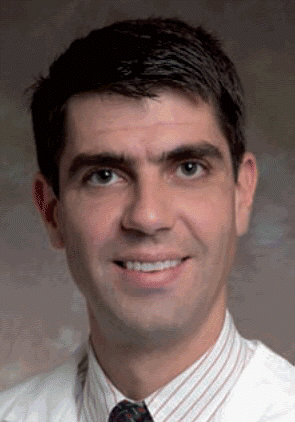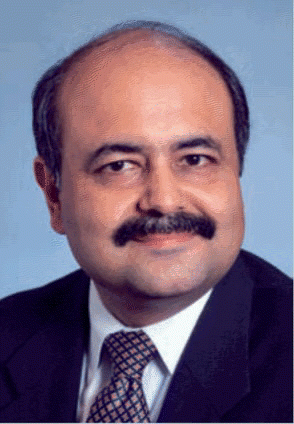In response to many national calls to enhance patient safety, the Accreditation Council for Graduate Medical Education (ACGME) mandated a maximum 80-hour workweek for all residents beginning in 2003. Traditionally, surgical programs have been the most grueling residencies, incorporating workweeks that often reached 100 to 120 hours. Because otolaryngology-head and neck surgery is both an operative and office-based specialty, the 80-hour workweek may have a different impact than in other surgical specialties, such as neurosurgery and cardiac surgery. But the impact on all residency training is important to consider.
Explore This Issue
November 2008Background of Work Hour Regulations
The concept of work-hour restriction has been rapidly developing in the medical education community over the past two decades, but a big jolt forward resulted as a response to a particular legal case in New York State when a grand jury investigation, launched after the death of 18-year-old Libby Zion, determined that the long hours of often unsupervised interns and residents was a contributing factor. In 2003, after much internal dialog and review, the ACGME introduced explicit regulations for residency training, designed to ensure that residents were sufficiently rested when caring for patients (see sidebar, page 8).1 These guidelines include criteria that are monitored by the ACGME, and violations bring risk for institutions’ loss of their residency program accreditation.
Advantages of Regulations
Prior to the mandate for restriction, there were no compelling data showing that decreasing work hours would result in greater patient safety and better care. Since 2004, a variety of studies conducted at several large academic health centers have generally shown no worsening of patient outcomes, some possible improvements, and mixed results on any mortality benefit associated with duty-hour restrictions.2-10 However, it is difficult to predict whether these results will endure and be similar across all institutions and in all settings. This underscores the need for further investigation.
Trainees’ quality of life has shown general improvement, as revealed by surveys and self-reports.5 Michael M. Johns III, MD, Director of the Emory Voice Center and Assistant Professor in the Department of Otolaryngology at Emory University in Atlanta, became interested in the subject of the work-hour restrictions when researching burnout in otolaryngology residents.11 Burnout is characterized by high levels of emotional exhaustion and depersonalization, and a low level of personal accomplishment. Particularly worrisome is depersonalization and the tendency to treat colleagues and patients as inanimate objects. In this study, Dr. Johns and his colleagues used the validated Maslach Burnout Inventory to measure and quantify the effects of burnout to common stressors in 684 resident responders before and after implementation of the 80-hour restriction. Burnout was extremely common among otolaryngology residents, with high or moderate levels reported by 86%. The work-hours variable was the strongest associated demographic factor with burnout, and those working more than 80 hours had the highest levels. With 8% reporting violations of the ACGME work-hour limitations, the researchers concluded that adherence to the 80-hour workweek may in fact help prevent burnout and its consequences.
 Both private and public payers need to recognize the importance of academic health centers in training the physicians of tomorrow. It is more expensive to operate academic health centers with teaching programs, and payer reimbursement should be commensurately higher to account for this.
Both private and public payers need to recognize the importance of academic health centers in training the physicians of tomorrow. It is more expensive to operate academic health centers with teaching programs, and payer reimbursement should be commensurately higher to account for this.-Michael M. Johns III, MD
Problems and Questions Still to Be Answered
Despite some generational differences among physicians, a new paradigm that respects the trainee’s leisure and family time is generally accepted as valid and important. Although most providers agree that a reduction of training hours is probably needed, there is no scientific justification that 80 is the magic number of hours that will still ensure excellent training and patient care. Educators voice concerns that the restrictions cut to the heart of the culture of surgery.12 Deliberate practice over time has been shown to be key to competency in technical fields such as surgery.13 If a resident is in the operating room, and must leave or risk a work-hour violation for the institution, he or she misses the opportunity to learn a procedure. This also puts the resident in a precarious position when the resident must decide whether to risk a violation or miss an important education and training experience. Residents may be punished for their professionalism in completing the work at hand. Another problem is that the work-hour restrictions are not being universally monitored in a standard format and documentation is inconsistent across various residency programs.
 Are we training residents appropriately regarding professionalism and patient care responsibilities, or are we moving toward training them as shift workers, regardless of patients’ needs?
Are we training residents appropriately regarding professionalism and patient care responsibilities, or are we moving toward training them as shift workers, regardless of patients’ needs?-Ajit K. Sachdeva, MD
There is insufficient flexibility built into the work-hour restrictions that would allow individual residents and supervising faculty to decide when resident fatigue will affect performance, said Ajit K. Sachdeva, MD, Director of the Division of Education at the American College of Surgeons and Adjunct Professor of Surgery at Northwestern University Feinberg School of Medicine in Chicago.
Leave a Reply